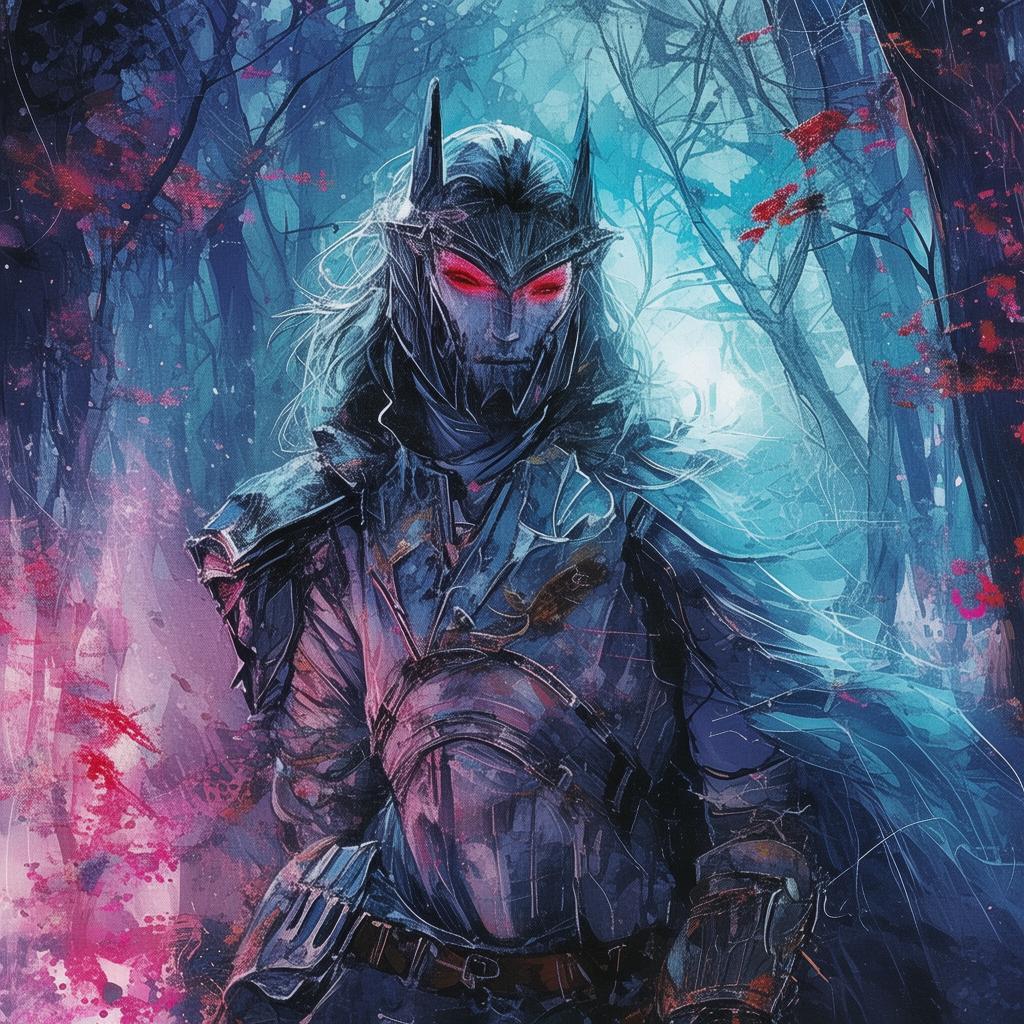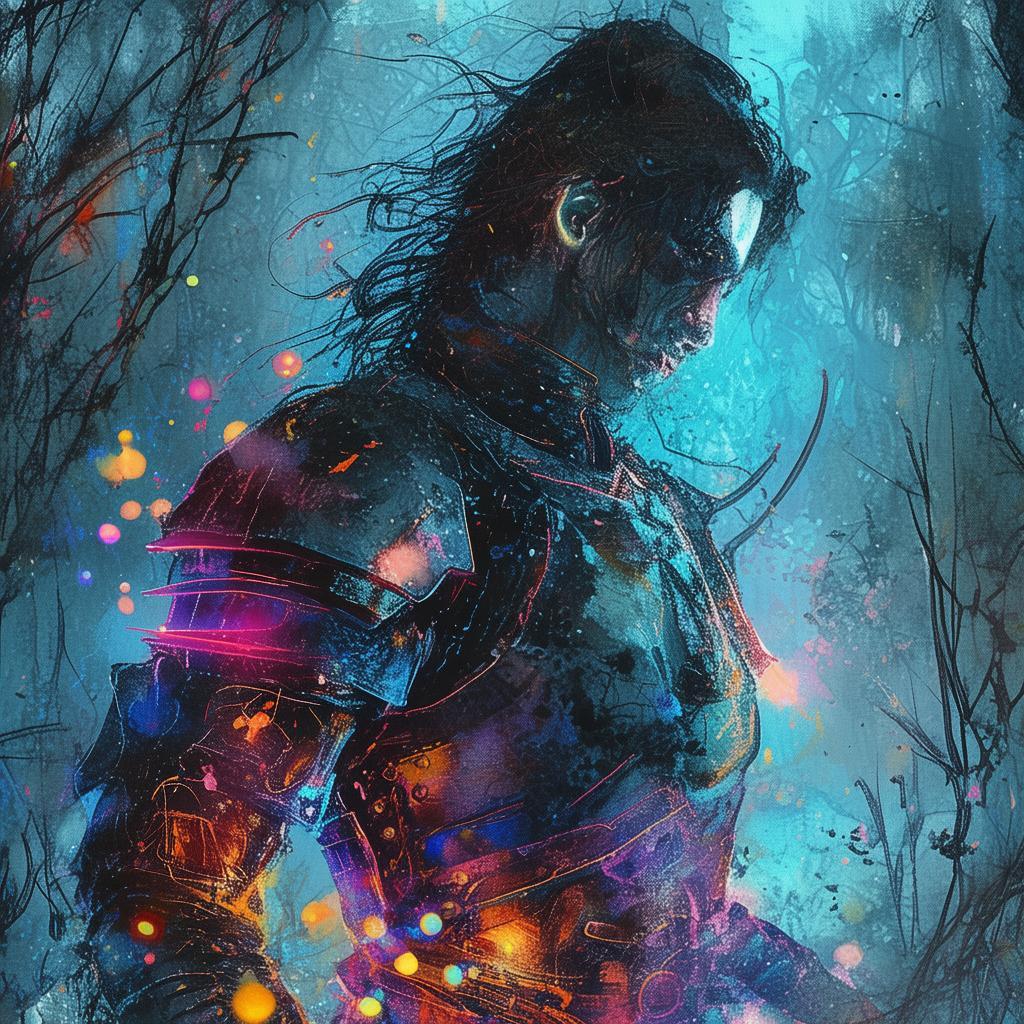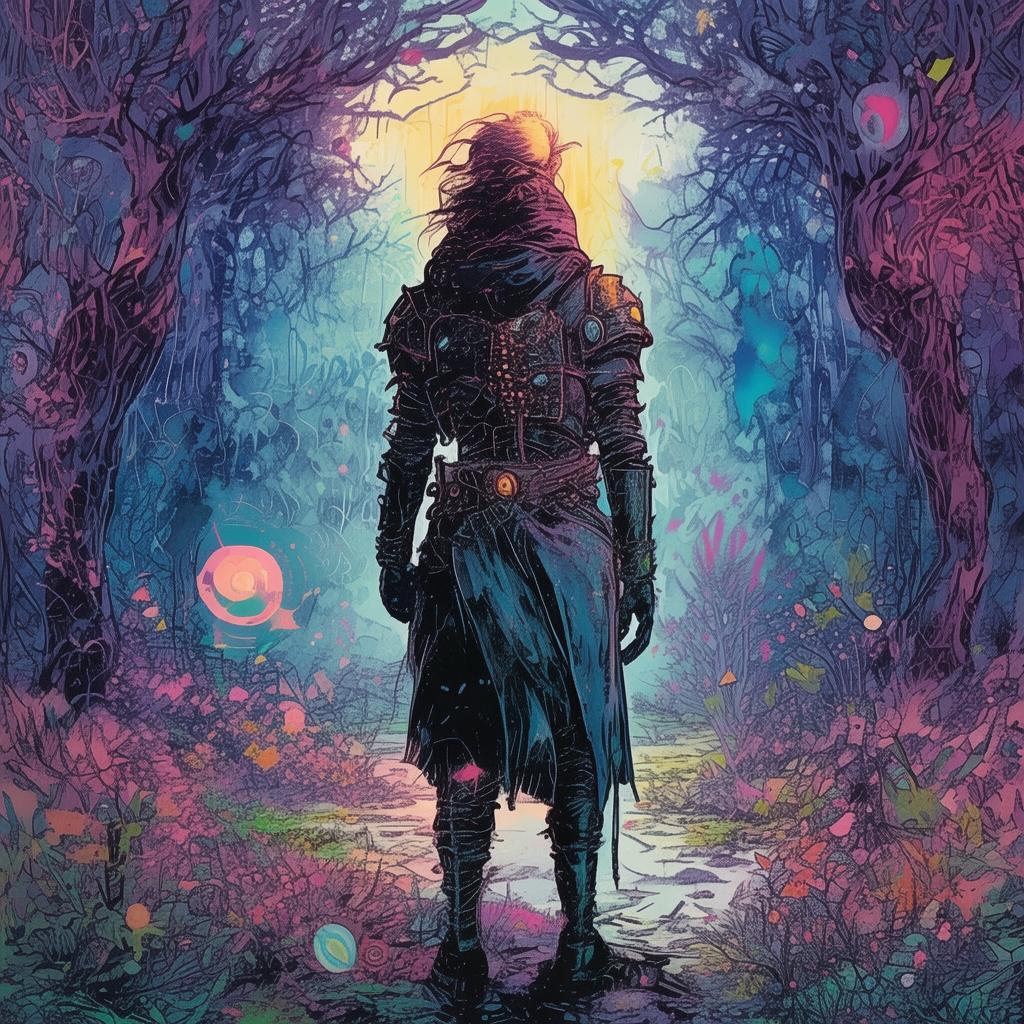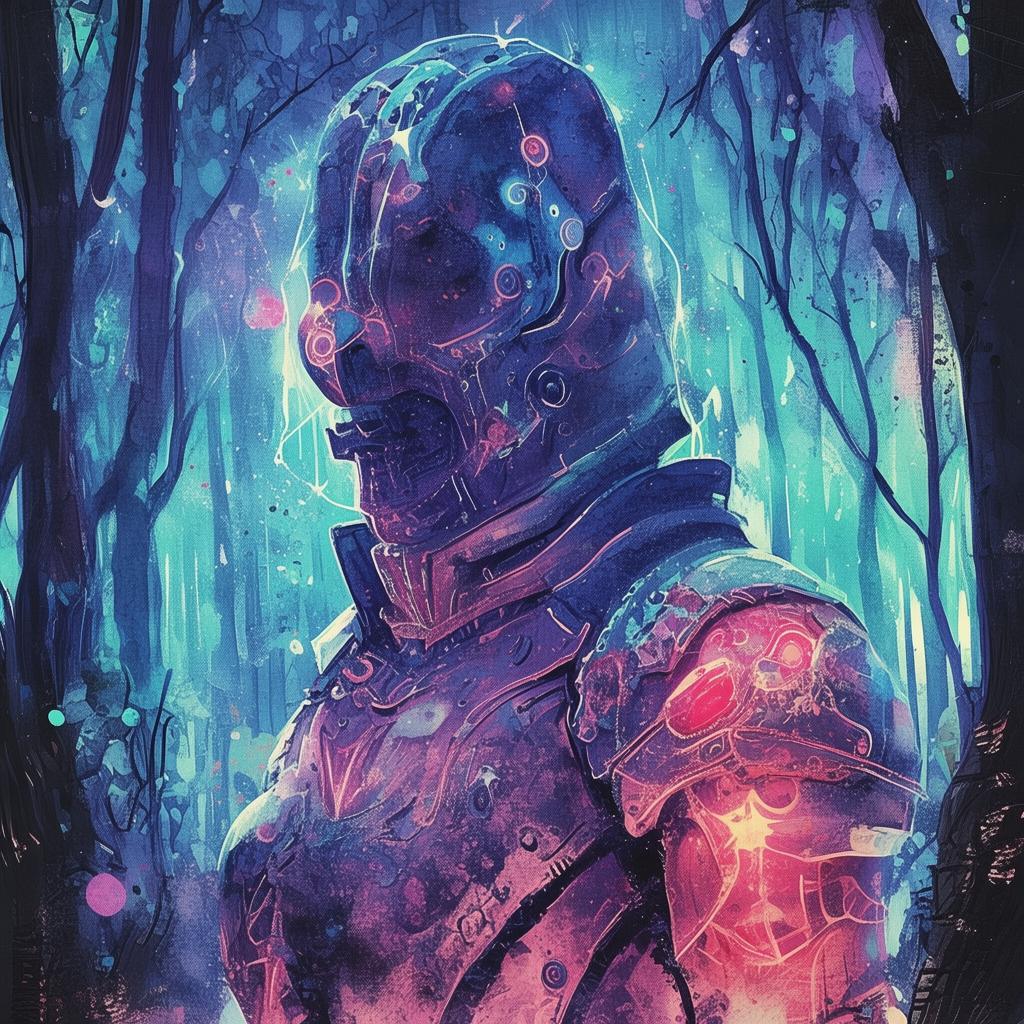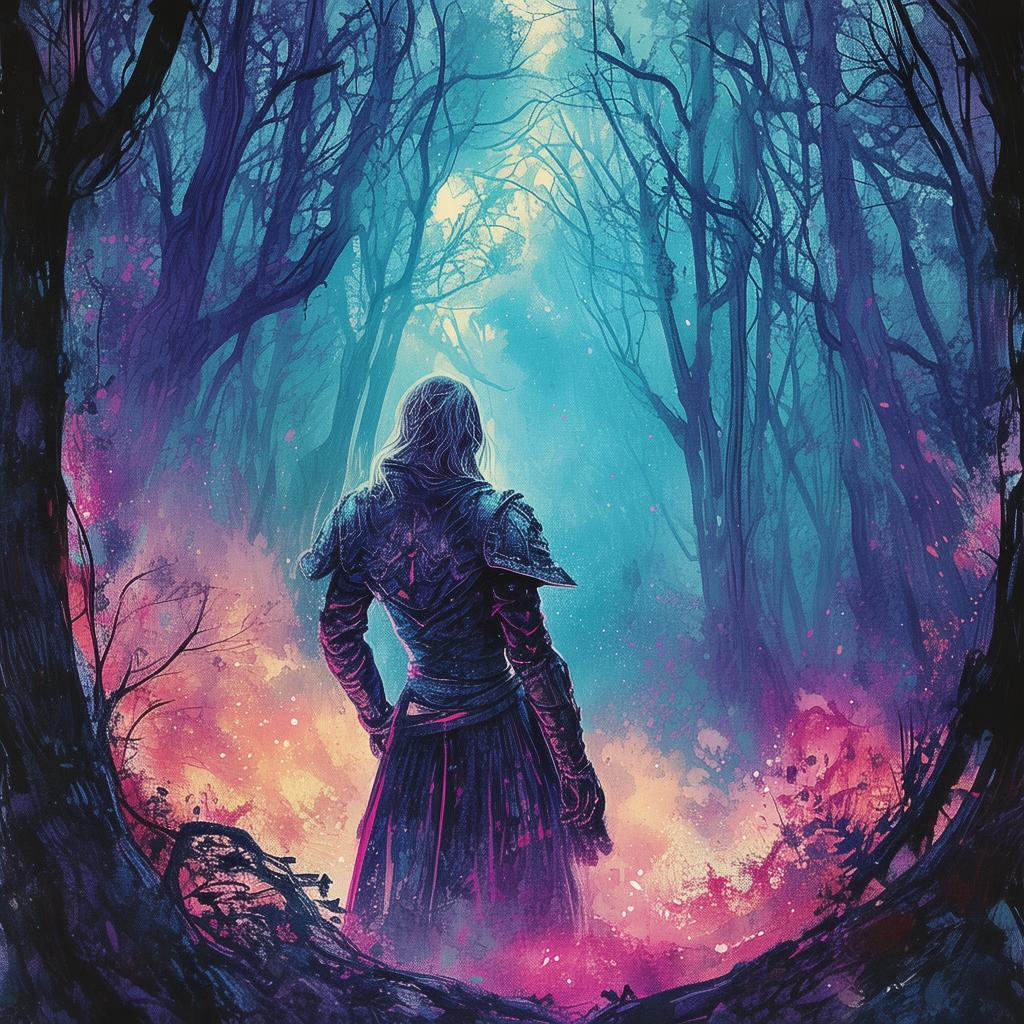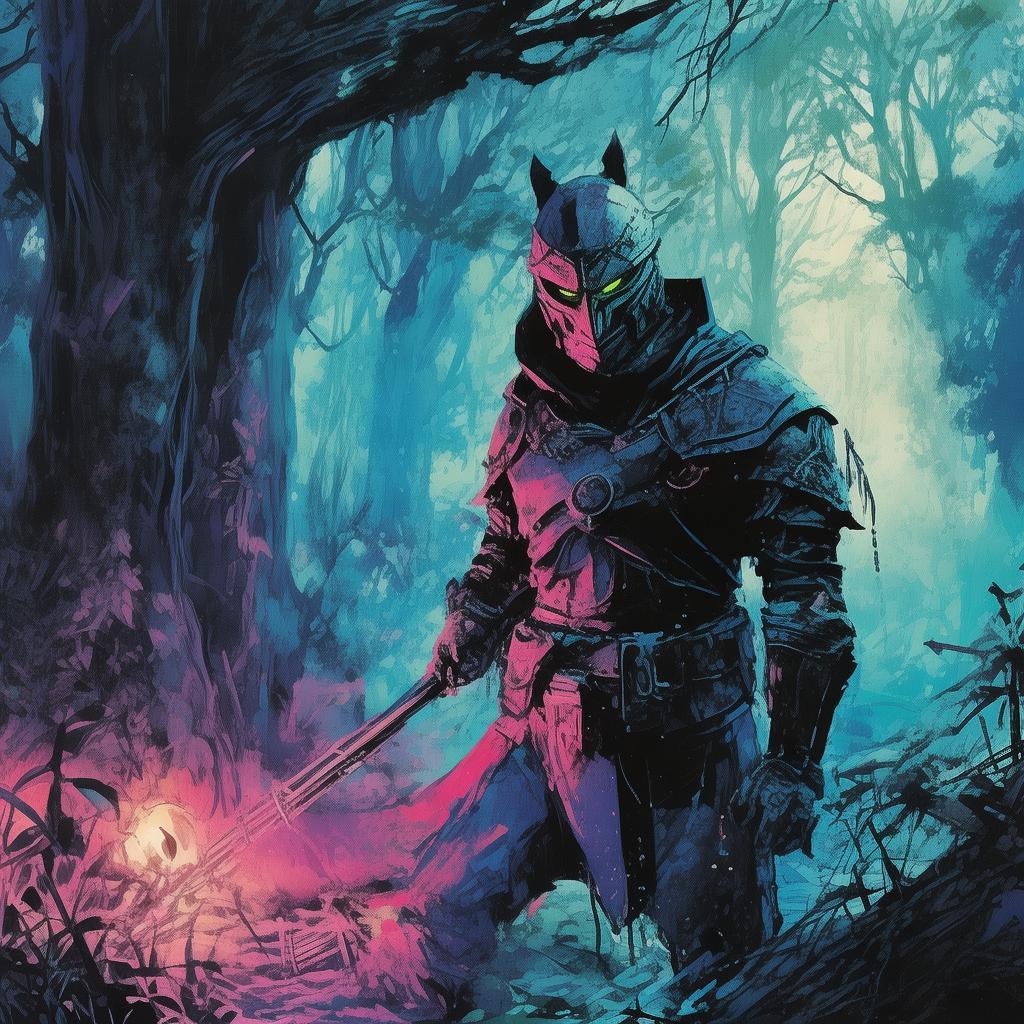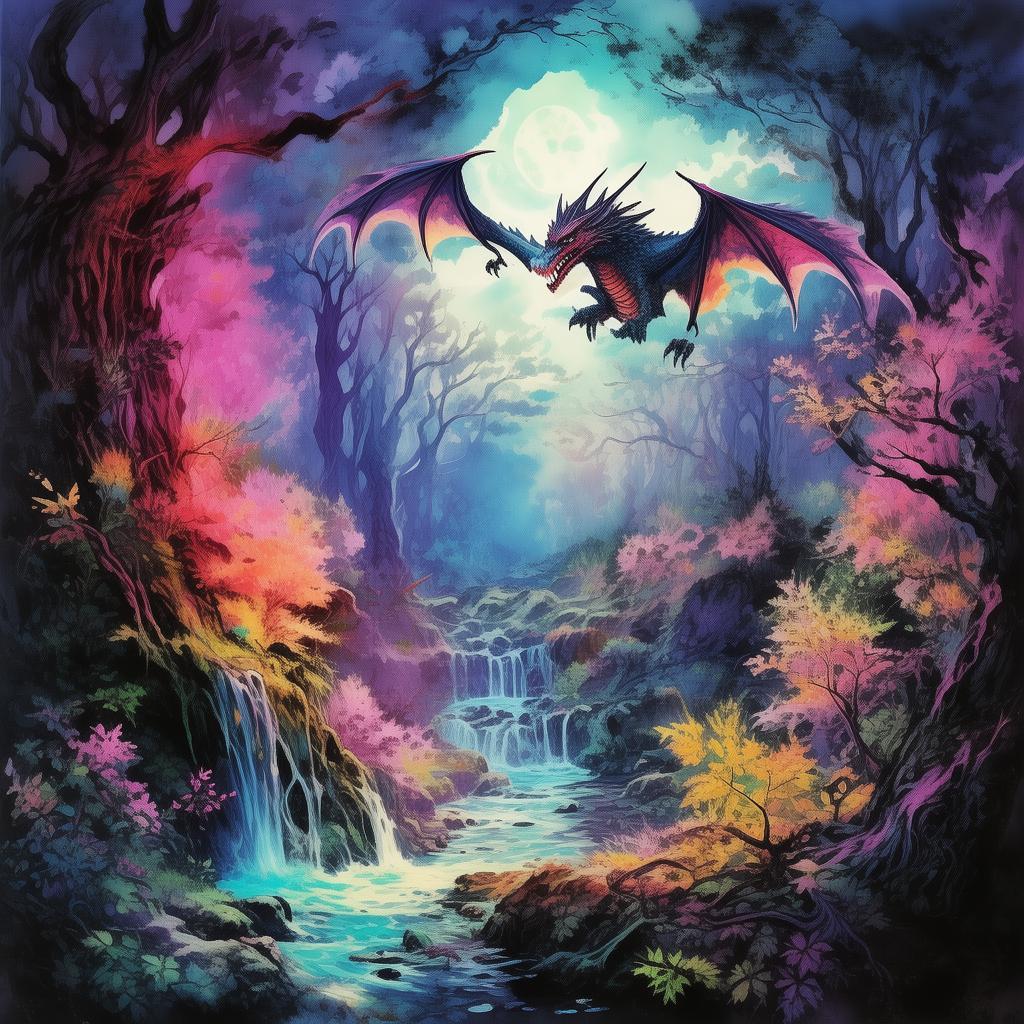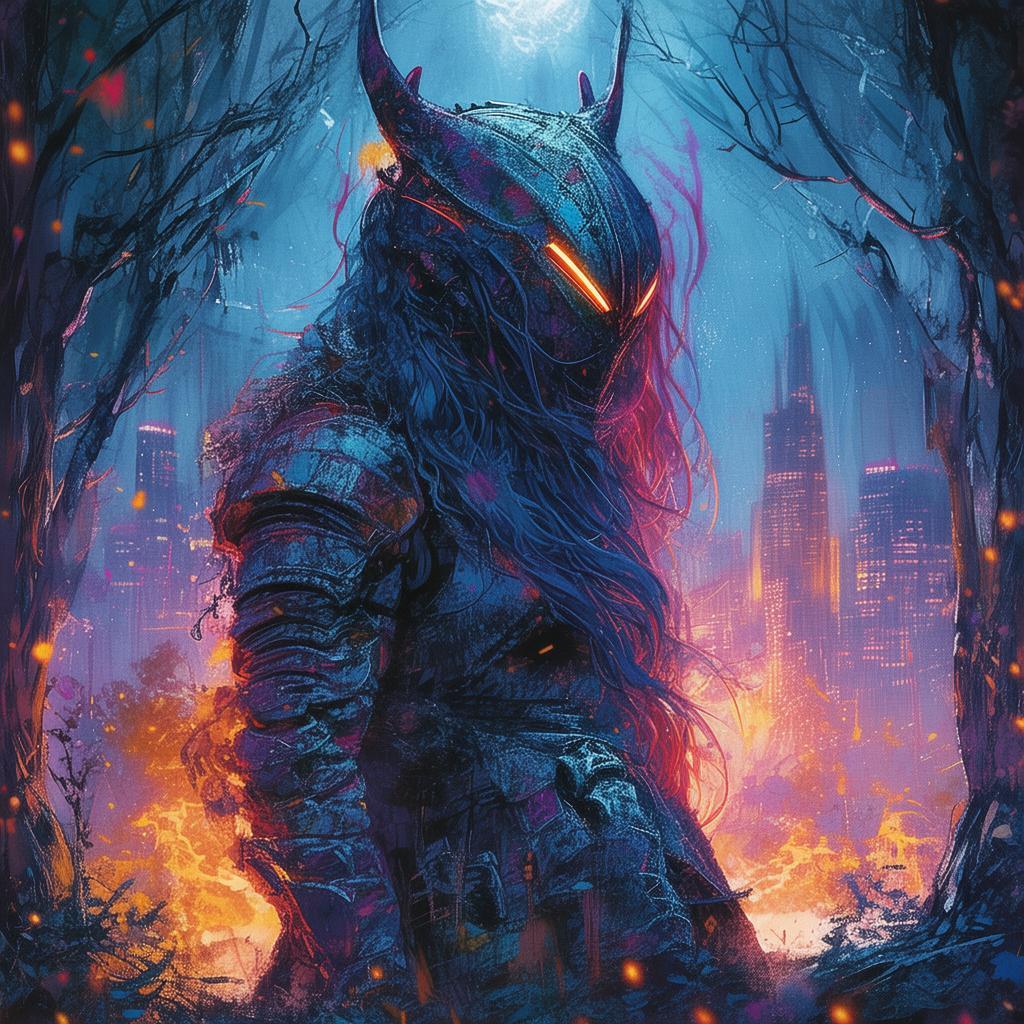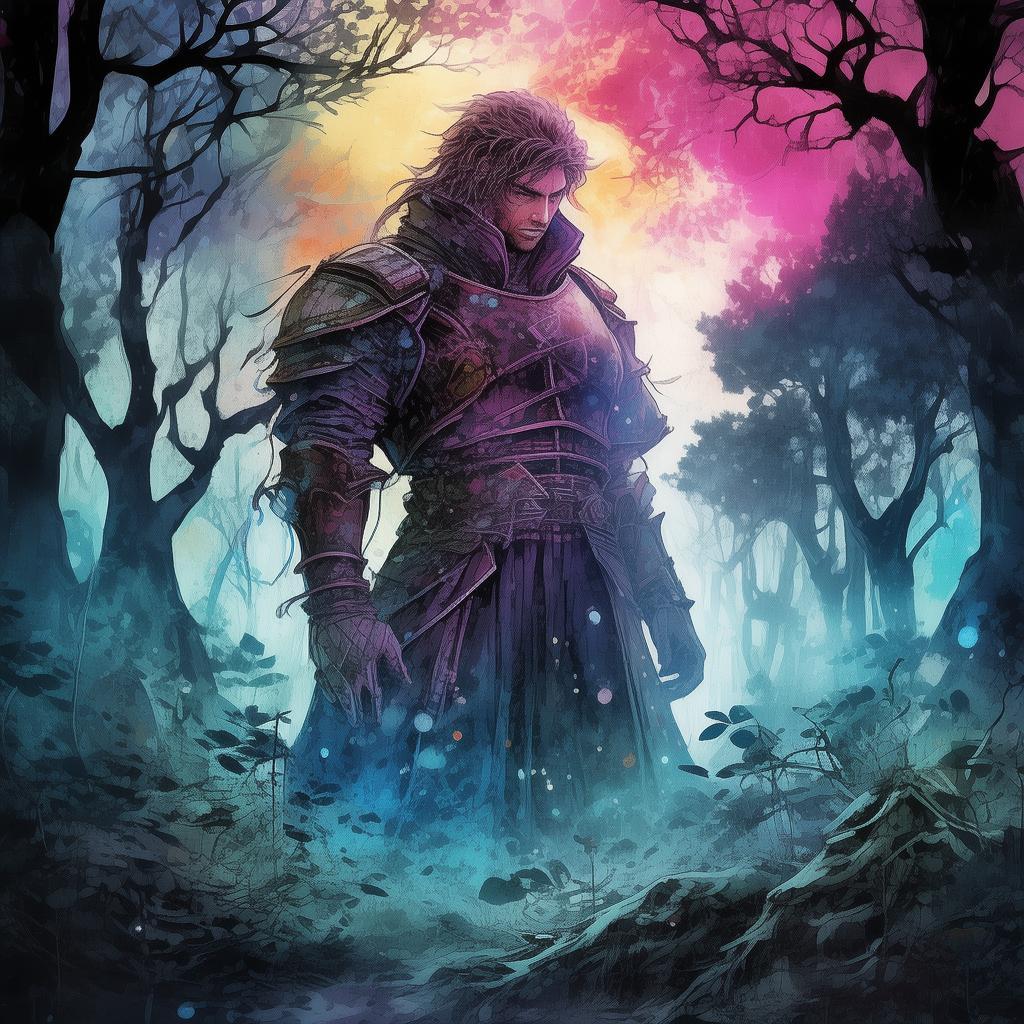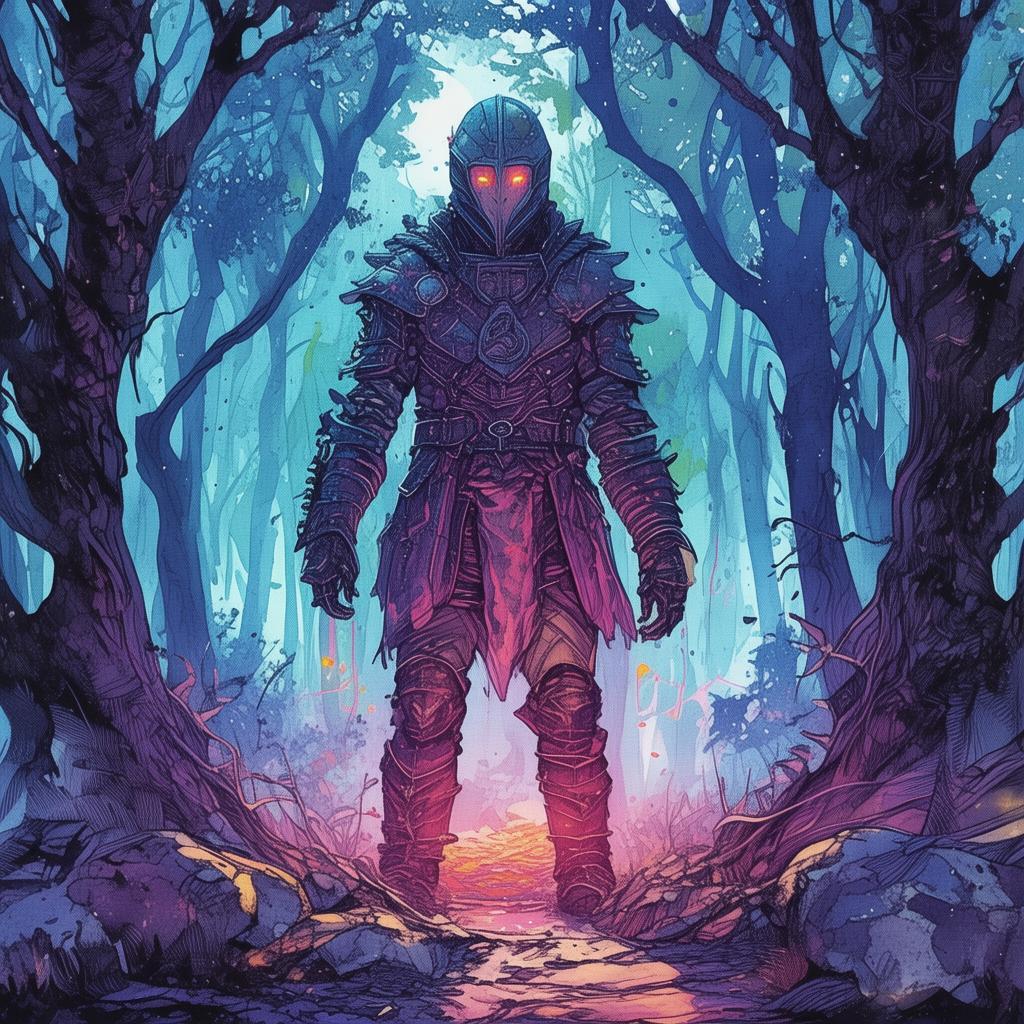The Whispering Shadows of Khyungri
In the remote reaches of the Tibetan Wilderness, where the sky kisses the icy peaks and the winds sing ancient tales, there lay a small village named Thang. It was a place of stark beauty and profound isolation, nestled between towering mountains and the relentless flow of the Khyungri River. The villagers spoke little of the world beyond their borders, and their lives were a tapestry woven from the threads of tradition, agriculture, and a deep reverence for the land and its spirits.
The legend of Khyungri had been whispered among the elders for generations. It was said that in the depths of the Khyungri Valley, a demon dwelled, its heart as dark as the night sky and its gaze as cold as the glaciers. It was the Demon of the Dance, and it would emerge from the shadows to claim the life of a soul every seven years, marking the cycle of death and rebirth in the wilderness.
The year was 1937, and Thang was about to face its greatest challenge. The villagers had grown anxious as the time for the Demon's Dance approached. The youngest girl in the village, Lhakpa, had just turned seven, and she was the one chosen by Khyungri to dance with death.
Lhakpa was known for her courage and her gift for storytelling. Her eyes were as bright as the stars, and her voice was like the wind that danced through the valley. She spent her days tending to the fields, her laughter a constant melody in the village. But as the night of the Demon's Dance drew near, she felt a strange unease, as if the very fabric of her world was being torn apart.
On the eve of the ritual, the village elder, Tenzin, gathered the people around the sacred bonfire. "We must be brave," he declared, his voice trembling with the weight of the centuries-old tradition. "We must face the demon with our hearts full of light and our minds clear of fear."
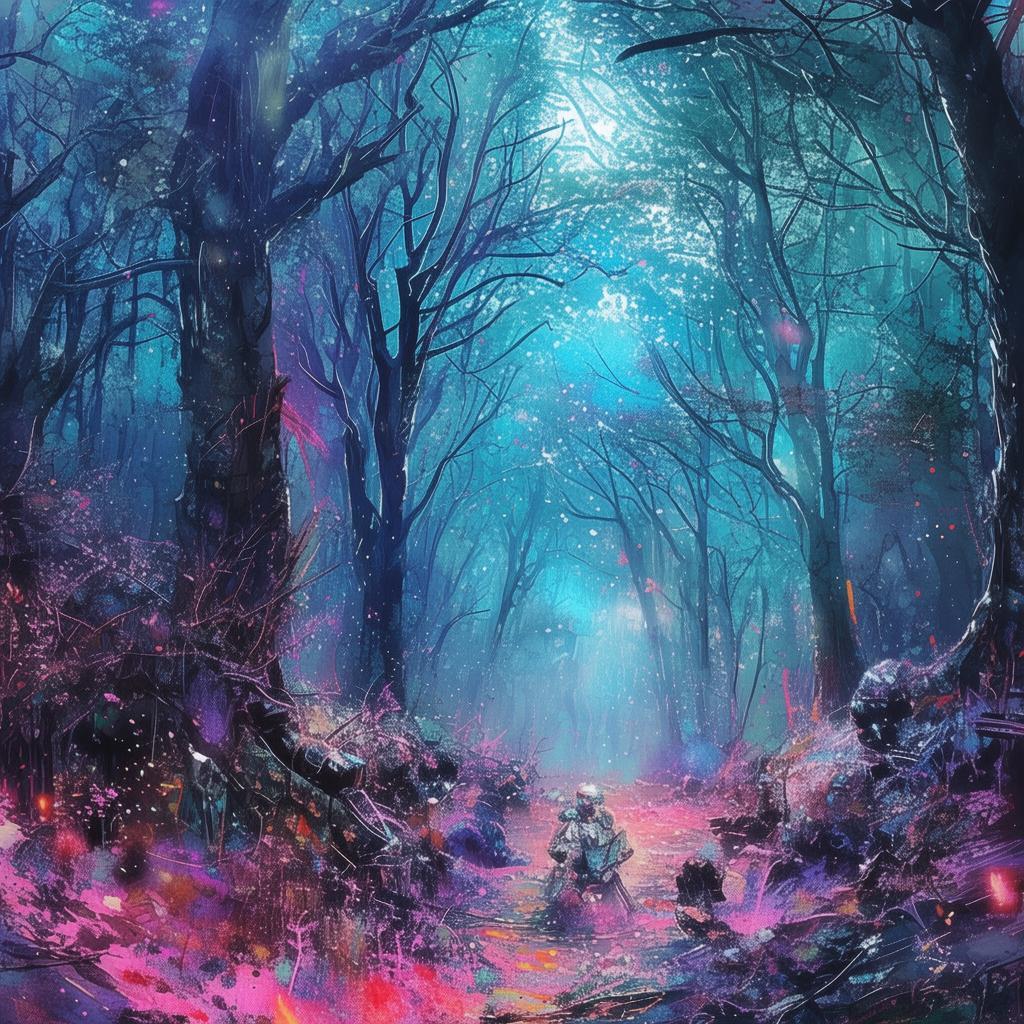
As the night deepened, the villagers could hear the distant howls of the Khyungri. They knew the demon was approaching. The air grew heavy with anticipation and dread, and the bonfire flickered like the eyes of an ancient beast.
Lhakpa stood at the edge of the circle, her eyes fixed on the darkness. "I will go," she whispered, her voice steady despite the shiver that ran down her spine. "I will face Khyungri."
The elder nodded solemnly. "Go in peace, Lhakpa. May the spirits guide you."
As Lhakpa stepped into the darkness, the villagers watched her silhouette fade into the shadows. The howls grew louder, and the village was filled with a collective gasp.
For what felt like an eternity, Lhakpa walked the path into the valley. The moonlight struggled to pierce the thick mist, casting eerie shadows on the ground. She felt the presence of Khyungri all around her, its dark essence like a cloak of night.
Suddenly, she heard a whisper, so faint at first it could have been the wind. "You are not alone."
Lhakpa turned to see a figure emerge from the mist. It was a young woman, her eyes filled with a strange, otherworldly light. "I am the spirit of Khyungri," she said. "But I am also the keeper of the balance. You have come seeking the truth, and I will show you the way."
The spirit led Lhakpa deeper into the valley, through a labyrinth of ancient stone structures and forgotten paths. As they walked, the spirit spoke of the balance between life and death, of the importance of respecting the natural world, and of the power of love and understanding.
Finally, they reached a clearing where the Demon of the Dance stood, its form a twisted amalgamation of darkness and power. The villagers could see Lhakpa and the spirit before them, and they held their breath.
"Khyungri," the spirit called out, "this girl seeks understanding, not destruction. Let her return to her people with knowledge and peace."
Khyungri's form wavered, as if caught between its ancient fury and the spirit's words. Then, with a final, thunderous roar, the demon vanished into the night, leaving behind a sense of peace and a new hope.
Lhakpa returned to her village, her eyes alight with a newfound wisdom. She shared the spirit's teachings with her people, and together they began to rebuild their lives with a deeper respect for the land and its spirits.
From that day forward, the village of Thang knew the legend of the Whispering Shadows of Khyungri, not as a tale of fear, but as a story of courage, love, and the eternal dance between life and death.
✨ Original Statement ✨
All articles published on this website (including but not limited to text, images, videos, and other content) are original or authorized for reposting and are protected by relevant laws. Without the explicit written permission of this website, no individual or organization may copy, modify, repost, or use the content for commercial purposes.
If you need to quote or cooperate, please contact this site for authorization. We reserve the right to pursue legal responsibility for any unauthorized use.
Hereby declared.
